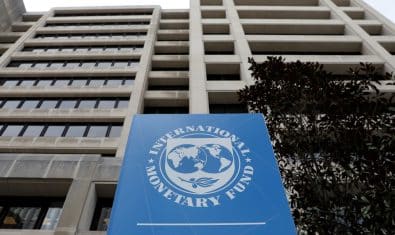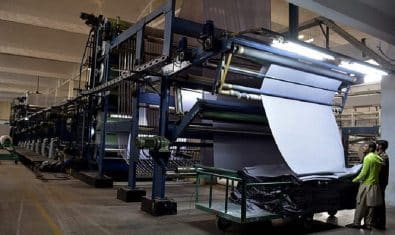The outbreak of COVID-19 exposed the longstanding inadequacies experienced in Pakistan.
It challenged not only the course of action but also the existing policies to improve healthcare, facilitation of basic needs to the underprivileged segments, and most importantly, kick-starting the economy.
To overcome major economic disruption and severe impacts, various countries adopted various techniques to mitigate the effects of the pandemic and kick start the economy. Pakistan chose the revival of ‘Construction and the Real Estate Industry.’
Pakistan’s construction industry sums over $50 billion, making up around 12-13% of the GDP. Out of this, the real estate sector contributes approximately 1/3 ($15 billion) of the total industry.
The industry catalyzes the entire supply chain including various components like strategizing and transportation systems for delivery and accessibility, the workforce including daily wage laborers, plumbers, technicians, builders, management of builders, etc. and the availability and provision of essential construction material i.e. cement, sand, steel, paint, hardware, etc.
Despite the growing economic importance that the real estate sector has attributed to the development of the economy, the true potential of the industry remained concealed in Pakistan.
The construction and real estate sector impacts millions of lives across the nation. Several governmental and non-governmental departments, along with actors in the public and private sector, have worked tirelessly to bring together over 50+ allied industries.
Before moving onto how Real Estate is driving the allied industries, it is important to understand the significance of the sector.
The role of ‘Economic Infrastructure’ in enabling an Economy
Be it the medium this article is being written from or being read from, the physical space from where this is brought from, or from where it is being perceived, it is all connected to real estate.
The construction and real estate provide an efficient infrastructure, where the economy operates. It is not only restricted to developing houses, but it also consolidates the space for businesses to operate from including high-quality, modern and innovative buildings, industries being set up, and material in factories being produced in. Paved roads, railway and communication networks, dry seaports, energy sources, financial systems, and institutions, etc. are also a representation of the economic infrastructure. This factor determines the economic growth potential and the ability to engage effectively.
Impacting every sector and sub-sectors simultaneously, real estate plays a significant role in the growth performance of a country.
The untapped Market Opportunities and Introduction of Proptech, ConTech
As established above, the true potential of the construction and real estate investment sector remained largely untapped, creating not only a market gap but also leaving Pakistan far behind as other nations prospered.
Amidst the fourth industrial revolution being experienced globally, and given the market gap, varying technological domains started penetrating nationally and were introduced including FinTech, EdTech, E-commerce, etc. given the market gap and demand.
The construction and real estate industry, however, was the last to adopt technology i.e. Proptech. Where the world prepared for the fourth wave of Proptech, Pakistan experienced the second and third waves about almost a decade ago.
After assessing the dynamics and gaps existing in the real estate industry of the nation, a subsidiary company- Graana.com, under the Imarat Group of Companies was established, with a goal to transform the Real Estate sector of Pakistan.
As one of the pioneering Proptech startups, Pakistan’s smartest property portal reshaped the industry by replacing the traditional methods with an efficient ecosystem of transparent transactions, in terms of buying, selling, renting and investing.
Apart from transforming the sector, it is the only group of companies growing on the value chain of Real Estate in Pakistan, curated after careful research to offer a transparent platform from transactions and be a driving force catering to the allied industries.
“The real estate business environment has been ignored for the last 73 years, affecting the supply chains and material sourcing. As a result, almost 90% of the mechanical, electrical, and plumbing appliances were imported, accounting for about 50-60% of a development project.
With the outbreak of COVID-19, the shutting of borders, enforced lockdowns, and imports halted have greatly caused a delay in real estate development.”
Shafiq Akbar | CEO Imarat Group, Chairman Graana.com
Taken into consideration the statement above, COVID-19 has undoubtedly proven to be detrimental globally, disrupting not just the global economy itself, but also as much as the basic everyday life.
However, the impact on the construction and real estate industry has been more positive. Here is how the industry is crucial for the revival of the economy but also driving 50+ allied industries.
1. Expansion of Domestic Industry and Goods
Shutting down of economies, closing of orders, and suspended trade due to the outbreak of the pandemic brought about an abrupt shift in consumer mindset and attitudes, resulting in a change in demand for products.
The primary concern – healthcare supplies and perishable goods.
To overcome the economic impact of COVID-19 in Pakistan, the government unveiled a multi-billion rupee economic package worth Rs900 billion, providing relief to citizens, particularly low-income groups who have been badly affected by the pandemic.
Aimed at stimulating economic activity and generating employment, the announced initiative included a relief package worth Rs100 billion for the construction industry, and Rs100 billion rupees to support small industries and the agriculture sector, among various other relief initiatives.
Under the relief package, some of the significant initiatives provided were waiving off the withholding tax on materials in the construction sector, subsidy worth Rs30 billion for Naya Pakistan Housing Scheme and lower sales tax aligned with the provinces.
To boost construction and real estate, the relief package incentivized the allied industry and paved a way to maximize sales and boost economic growth during these challenging times.
With the trade shut down, this provided crucial opportunities for Small and Medium Enterprises (SMEs) to expand their domain and services and promote domestic goods locally.
– Cement
The cement sales increased 19.63% domestically and were recorded at 3.835 million tons in June 2020, as compared to 3.206 million tons recorded in June 2019. On the other hand, the exports recorded at 0.351 million tons in June 2019, jumped 123.89% to 0.787 million tons in June 2020.
While comparing the cement manufacturing units in different zones, it was highlighted by the All Pakistan Cement Manufacturers Association (APCMA) that the north region was stronger in domestic consumption and south region in exports.
– Steel
Along with COVID-19, the demand for steel has been fueled by the wave of capital expenditure and infrastructure projects such as power plants, dams, airports, road networks, development of Special Economic Zones (SEZs), and a rise in public and private housing schemes.
Currently, there are 200 steel manufacturing units in the country, with a combined capacity of over 4 million tons. The sector has successfully generated almost Rs100 billion in government revenue.
– Construction Machinery Industry
The domestic construction machinery industry of Pakistan has witnessed a surge in demand and is further increasing.
The reason has been accorded to the increased number of developmental projects being carried out. Prior to the outbreak of COVID-19, many Japanese and European companies overtime entered the Pakistani market in different forms, establishing either joint ventures in the local market or offering after-sales service stations in the local market.
A 383 member Pakistan Construction Industry Association (PSIA) has been working continually, successfully pitching the Pakistani market to international enterprises.
With a surge in development projects all across the nation, the demand for other building materials like hardware, paint, plumbing goods, etc. are also on the rise.
2. Employment Generation
Being one of the most populated countries, Pakistan’s population is divided into a range of classes, with a huge chunk falling under the category of daily wage laborers.
Being a daily wage-laborer has no fixed income, job security, or even means of earning. They may fall under the category of a skilled laborer or an unskilled laborer. The outbreak of Coronavirus dismantled the means of earning and even living for such segments.
In a bid to accommodate such segments, the government allocated a sum of Rs200 billion, to protect the economic interests of laborers and daily wage earners affected by the COVID-19.
In addition, the ‘Ehsaas Emergency Cash program’ was also launched to somewhat ease the economic hardships experienced by the vulnerable groups due to the ongoing crisis. The financial assistance under the program covered 12 million families; awarding a sum of Rs12, 000 per family, with a total budget of Rs144 billion.
Resuming constructional activities across the nation arranged for creating employment not just for the underprivileged segment of the society, but also for others.
Currently, numerous developmental projects in both the private and public sectors are underway that has created thousands of job opportunities.
3. The Unmet Housing Demand
The housing demand is expected to stand at around 20 million units, over the course of the next 10 years.
Sourcing material, plumbing material, bricks, concrete, wood, etc. are all essential for the construction of homes. With various housing schemes being carried out in both, the private and public sectors are to meet the existing housing deficit and overcome the prevailing issue.
With this, all the related allied industries have soared especially amidst COVID-19, due to the absence of international competition and an increase in demand. The process has also been catalyzed by the relief package announced for the construction industry.
4. Attracting Foreign Direct Investment
Despite facing a myriad of challenges in the form of political instability, rising security concerns, and a stagnant economy, Pakistan successfully transformed and improved the investment outlook.
Pakistan’s FDI has increased by $174.8 million in Jun 2020, compared with an increase of $120.0 million in the previous month.
Positively attracting sums of FDI accounts for the economic stability of a nation, Taking note of the FDI, and mounting capital inflows for various development projects like CPEC, CAREC, etc. highlight a secure financing environment and an important element of economic stability.
In the course of recent months, Pakistan has successfully attracted major chunks of investments for various projects, especially for the promotion of the tourism industry.
The impacts of COVID-19 undoubtedly set the dynamics in different trajectories, which will stay subjective to significant changes in the upcoming months. As people wait to see the results of the huge intervention undertaken by the government to mitigate the impacts, revive the industry, and boost economic growth. However, the need for the lookout for investment and business ideas keeps going high as we speak.
Along with identifying the untapped sectors, the construction real estate sector of Pakistan has provided magnanimous investment opportunities, which includes the development of SEZs, boosting the tourism sector, different residential and commercial projects, etc. and China Pakistan Economic Corridor (CPEC) as a game-changer.
While one cannot predict what issues the future will spur, hence, it is imperative for the government to make the right policies that strive to create a resilient real estate landscape of Pakistan, to boost economic growth.
This article was originally published here.


























